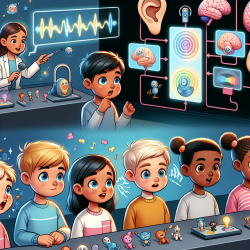As an online therapist working with schools, it's crucial to stay informed about the latest research and findings to enhance your practice. A recent study titled "From high school to postsecondary education, training, and employment: Predicting outcomes for young adults with autism spectrum disorder" provides valuable insights into the post-school outcomes (PSO) for students with Autism Spectrum Disorder (ASD). Let's delve into the key findings and explore how you can implement these outcomes to improve your skills and encourage further research.
Key Findings from the Study
The study utilized data from two states, applying predictive analytics (PA) methods such as multilevel logistic regression and machine learning to assess PSO engagement. Here are the two main findings:
- High School Graduation: Graduating from high school was identified as the strongest predictor of PSO engagement for exited students with ASD.
- Machine Learning Accuracy: Machine learning methods, particularly the Random Forest algorithm, outperformed traditional multilevel logistic regression in predicting PSO engagement.
Implications for Online Therapy Practitioners
These findings have several implications for online therapy practitioners working with schools:
- Focus on Graduation: Emphasize the importance of high school graduation in your therapy sessions. Work collaboratively with school staff to ensure that students with ASD are on track to graduate.
- Incorporate Predictive Analytics: Consider using predictive analytics tools to assess the likelihood of your students' post-school success. This can help tailor your interventions more effectively.
- Continuous Professional Development: Stay updated with the latest research and advancements in predictive analytics and their applications in special education. This will enable you to refine your practices and provide better support to your students.
Encouraging Further Research
While this study provides valuable insights, it also highlights the need for further research. As a practitioner, you can contribute to this by:
- Participating in Research: Collaborate with researchers and participate in studies that aim to improve the understanding of PSO for students with ASD.
- Sharing Your Findings: Document and share your experiences and outcomes with the broader community. This can help build a more comprehensive knowledge base and improve practices across the field.
To read the original research paper, please follow this link: From high school to postsecondary education, training, and employment: Predicting outcomes for young adults with autism spectrum disorder.










